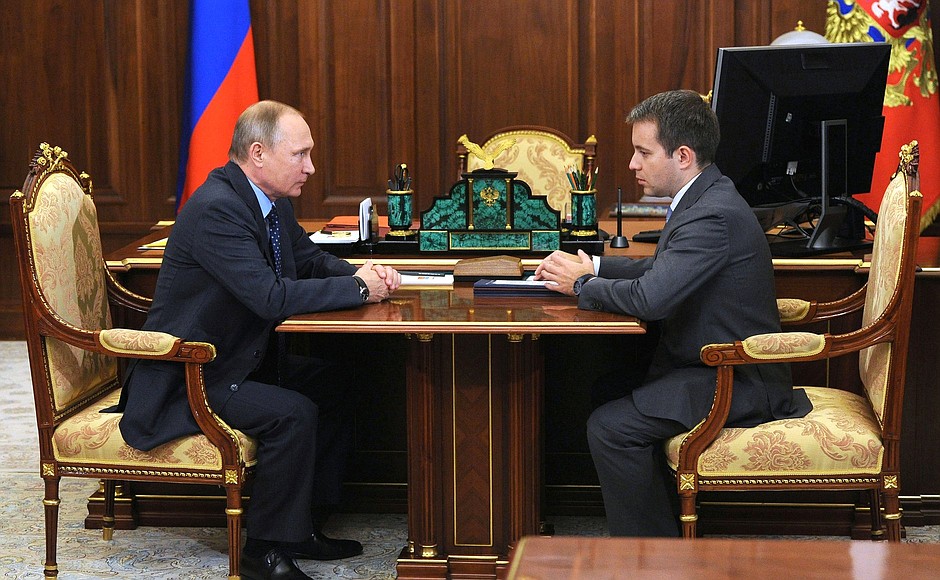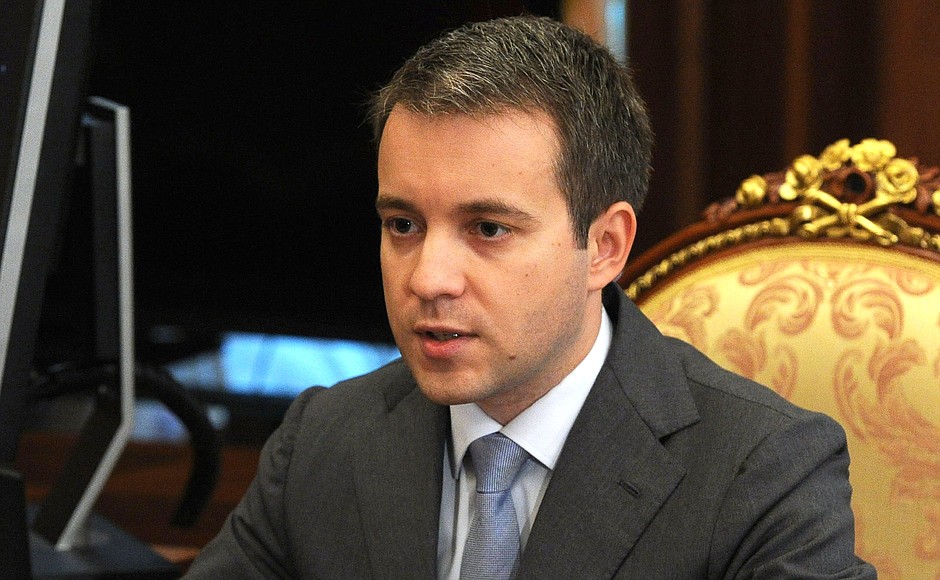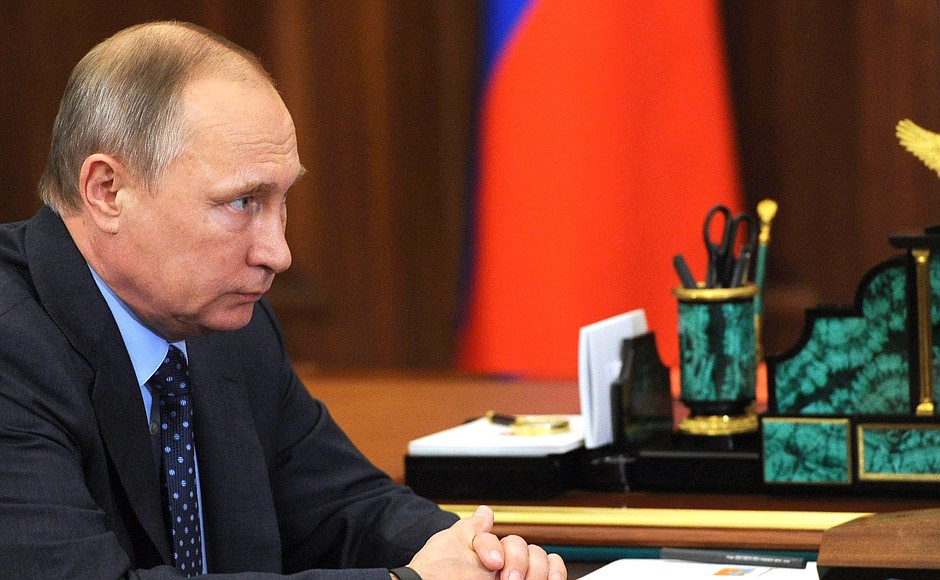President of Russia Vladimir Putin: Mr Nikiforov, let’s start with the project to increase the use of information technology in the housing and utilities sector.
Minister of Communications and Mass Media Nikolai Nikiforov: Mr President, a federal law was passed in 2014, which lays the foundations for developing the housing and utilities state information system. What is this system’s purpose and what will it give our citizens?
The idea is to guarantee all households the transparency of all information related to the household, that is to say, information on who provided which services, at what price, what settlements took place, are there any debts, claims and so on. The idea is to have all information from the managing companies, residents’ cooperatives, and the various supply organisations accessible in one place.
We have the Unified Public Services Portal that already has 32 million registered active users. We want to make sure that everyone who needs such information is able to access housing and utilities sector information online.
Some regions and some management companies already provide this information. What the federal law does, essentially, is to unify the standards. The law comes fully into force on January 1, 2017. There are three months remaining. All of the management companies are involved in this work – more than 14,000 companies. The resource supply organisations, residents’ cooperatives and the local authorities responsible for the housing and utilities sector are also taking part. This all comes to more than 60,000 organisations. The project is now close to completion.
Liability for compliance takes effect from January 1. The Administrative Offences Code has appropriate provisions and organisations that fail to make information available will face financial penalties after this date.
This system makes it possible for everyone to exercise public control to ensure that information is available and the housing and utilities sector is not operating in some kind of grey zone. We are working together with the Ministry of Construction and Housing and Utilities to implement this project and are now monitoring in this final stage the work underway to get everything ready in the different regions.
Vladimir Putin: You will also need to inform consumers about the opportunities these new online tools offer.
Nikolai Nikiforov: The public services portal’s 32 million users will automatically get access to the system. I am sure that the development of this information resource in itself will give a big boost to interest among our citizens in using these online public services.
By way of reference, broadband internet access has already reached a level of 69 percent in Russia. It was around 50 percent in 2011, but today stands at 69 percent. There is therefore a huge potential for the public to use this kind of technology. Our task is to ensure that the state authorities can guarantee a quality service that works.
We have another important project related to the housing and utilities sector and payments systems. I would like to say a few words about progress on the project to establish a postal bank. The idea behind this whole project was that as banks often leave the small towns, we could support these small places through the postal service network. This is the biggest service provider network in the country today with 42,000 branches. Together with VTB Group, we have established a joint bank and have already opened 3,000 branches. We plan to have 6,000 branches open by the end of the year, and the project strategy envisages opening 20,000 branches by 2023.
What is important here? If we look at the bank’s assets, they have already passed the 100-billion-ruble mark, which puts the bank in around 65th place in the country. But if we look at the bank in terms of its social mission, we see that it already ranks third in the country in terms of consumer loans for simple everyday needs, with such loans now coming to a total of more than 69 billion rubles.
The priority for us is to make sure that people in these small places have real access to all the latest banking services. This project is therefore a very important one.
At the same time, it also has great importance for the Russian Post too. Russian Post today is a completely autonomous enterprise, operating without any budget subsidies. It really is an independently functioning organisation.
We are very concerned about the need to raise postal workers’ wages. In 2012, wages came to 15,000 rubles. Today, wages have grown to 20,000 rubles. We have set a target of 26,000 rubles next year and will continue to increase wages. This concerns around 300,000 people, which represents a big human resources pool in the different localities. But the only source for wage increases is increased profits in the enterprise itself.
The postal bank is up and working now. Our strategy provides for what we call an infrastructure payment. Simply put, the bank pays Russian Post for the right to work in its post office branches. Our strategy through 2023 provides for a payment of up to 47 billion rubles. We have just started work and have already obtained around 143 million rubles in additional earnings for the post. This money will go towards incentives and wage increases for postal workers.
Vladimir Putin: Good.
<…>



